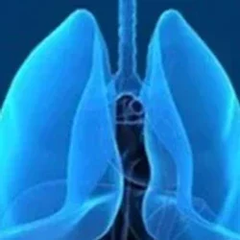
Dr. Hanna on Approaching Biomarker Testing in Lung Cancer
Nasser H. Hanna, MD, discusses his approach to biomarker testing in lung cancer.
Episodes in this series

Nasser H. Hanna, MD, Tom and Julie Wood Family Foundation Professor of Lung Cancer Clinical Research, professor of medicine, Indiana University School of Medicine, discusses his approach to biomarker testing in lung cancer.
All patients with stage IV lung adenocarcinoma should undergo baseline molecular testing irrespective of smoking history, says Hanna. The selected molecular panel should test for EGFR exon 19 and L858R, BRAF V600E, and MET exon 14 skipping mutations, ROS1, RET, ALK, and NTRK fusions, and MET amplification, Hanna says. Additionally, emerging targets, such as HER2 exon 20 mutations, KRAS G12C mutations, and NRG fusions, should be tested for, Hanna adds.
Typically, newly diagnosed patients undergo immunohistochemistry (IHC) testing to confirm the disease histology, says Hanna. After IHC staining, if the patient has available tissue left, tissue-based biomarker testing should be performed. If the patient does not have available tissue, plasma-based molecular testing may suffice in identifying actionable alterations, Hanna says. Additionally, waiting for the molecular testing results to come back before initiating therapy should be standard practice, Hanna adds.
Specifically, immunotherapy should not be recommended before the results of molecular testing are returned because patients with EGFR mutations, for example may not have an optimal response to immunotherapy even if their tumor is PD-L1 positive, says Hanna. In some instances, such as for patients with BRAF V600E–mutant lung cancer, immunotherapy may be preferred despite the presence of an actionable alteration, Hanna explains.
Generally, the commercially available sequencing platforms for tissue- and liquid-based testing are comparable, concludes Hanna.














































